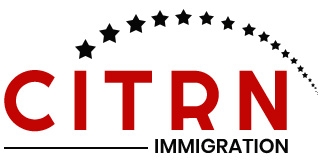
How can I claim refugee in Canada from India?
How can I claim refugee in Canada from India?
Like any other country in the world, Canada is providing a haven for people who are seeking refuge due to persecution, violence, or serious abuse of basic human rights in their respective countries of origin. For all Indian aspirants to seek refuge in Canada, they should know about eligibility, legal routes to apply, and how to submit their refugee status claims. This blog is a step-by-step guide to claiming refugee status in Canada for Indians, what you can do, and what kind of protection you would get in Canada.
Who Can Claim Refugee Status in Canada?
Before considering how to claim refugee status in Canada from India, it is essential to understand who qualifies as a refugee under Canadian law. According to Canada’s immigration system, a refugee is someone who:
- Has a well-founded fear of persecution on account of race, religion, political opinion, nationality, or membership of a particular social group (including gender or sexual orientation).
- They are unable to return to their home country due to the risk of torture, threat to life, or if they may be subjected to cruel or inhumane treatment. If, for one or all of the reasons mentioned above, you find that you are at risk in India, you could be eligible for applying for refugee protection in Canada.
Access Routes to Refugee Status in Canada
Identify the stages that lead to refugee status in Canada.
There are two primary channels whereby one can become a refugee in Canada as an Indian citizen. The first is through
Refugee Resettlement from Outside Canada
You can submit your application for refugee protection directly from India under the Immigration, Refugees and Citizenship Canada's Refugee and Humanitarian Resettlement Program. The program is set for individuals located outside of Canada and in need of protection. Most applications usually entail:
Referral by the United Nations High Commissioner for Refugees (UNHCR) or other designated referral organization. One is assessed by the UNHCR to determine the need to resettle and referred to Canada for protection. Eligible participants are those who have been registered as refugees with the UNHCR.
Private Sponsorship:
Besides government-assisted refugees, Canada also allows private groups of Canadian citizens or organizations to sponsor refugees. If you have family or community contacts in Canada, they can sponsor you through the Private Sponsorship of Refugees (PSR) program. A refugee's sponsor offers financial and emotional support for one year to help settle a refugee in Canada.
Inland Refugee Protection Program
If you are already in Canada or can travel to Canada, you can make an inland refugee claim. Citizens of India can submit a claim for refugee status once they arrive at a Canadian port of entry (an airport or land border) or from inside of Canada. The Inland Refugee Protection Program is for people who are already on the ground in Canada and need asylum. In other words, you need to show that you will be in danger if you return to India.
Process to Claim Refugee Status from Within Canada
If you are traveling to Canada and plan to make a refugee claim when you get there, the process you will use would involve the following steps:
Arriving at a Canadian Port of Entry
At the port of entry, which can be an airport or a border crossing in Canada, you can claim refugee protection. Then, before the CBSA, you have to inform them that you want to make a claim for refugee protection.
Document Submission
You will need to provide supporting documents when making your claim. These can be:
- Proof of Identity, which could be a passport or any other travel documents.
- Personal history and grounds for which protection is being sought (for example, documentary proof of persecution in India).
- Medical information and other general background information.
Eligibility Review
Once you submit your claim, it will be the case of IRCC or CBSA that assesses your case to determine if your claim will proceed. When deemed eligible, then your case will be forwarded to the Immigration and Refugee Board of Canada; that is, an independent tribunal which decides refugee claims.
Refugee Hearing
You will be scheduled for a hearing before the IRB, where you will present your case. During the hearing, you will need to provide evidence and testimony about the dangers you face in India. The IRB will assess whether you meet the criteria for protection under Canadian law.
Decision
The IRB will provide a decision upon the completion of the hearing. If your claim is accepted, you are a protected person and entitled to apply for permanent residence. Should your claim be refused, then an appeal against the refusal can be lodged, or a judicial review.
Indian Refugee Claimant Considerations
Safe Third Country Agreement (STCA)
Thirdly, if you are contemplating crossing from the United States into Canada, you should be aware that there is a Safe Third Country Agreement (STCA) between Canada and the U.S. The agreement indicates that the first country to which the person arrives in a safe third country where she or he has cause for refugee claim protection must make her or his claim. This means that an applicant who tries to enter Canada from the U.S. by land is not allowed to make a refugee claim unless she or he meets the conditions for an exception listed above such as having family members in Canada.
Temporary Resident Visa (TRV)
If you are traveling to Canada to make an inland refugee claim, you may be inadmissible without a Temporary Resident Visa (TRV) to enter Canada. That will be the case if you require a TRV to enter Canada. To secure an entry visa, you may need to establish that you are admissible on visa grounds and that you are truthful about what you intend to do. If your intention is to seek asylum, you should inform the Canadian immigration authorities of your intention when you apply for your TRV.
Lawyer Representation
Processing a refugee claim is not easy, and always seek professional legal representation. You may also get assistance from an **authorized immigration consultant** or an immigration lawyer with experience in the field of law on refugee cases. Representation enhances your possibility of success through your case presentation.
Refugee Appeals and Judicial Review
If the decision is made and your claim as a refugee is denied, you still have other options. You may appeal the decision to the Refugee Appeal Division and even get the case reviewed judicially through the Federal Court. The appeals process will give your case consideration again with new evidence considered and even obvious errors in law that arise during the process.
The Pre-Removal Risk Assessment (PRRA) would be another chance at averting deportation should one believe there is a serious risk of peril when returning to India and is being removed from Canada.
Settlement Support for Refugees in Canada
Canada offers settled resettlement services to accepted resettlement refugees. Settling services include language training, job search support, help for finding housing and some means of access to education to enable you to settle into life in Canada. In addition, government-assisted refugees and privately sponsored refugees receive funds to enhance your resettlement costs during the early period of your resettlement.


Looking for safety and a fresh start in Canada?
Explore refugee sponsorship programs and begin your journey to a new life.
Contact us today for support and guidance.

